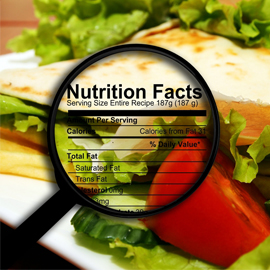Dietary Fats Explained
August 2010
 If you’re trying to diet to lose weight, you may been told to “cut the fat.” But experts remind us that not all fats are bad. In fact, some fats are an essential part of a healthy diet. Find out more about the different types of fats that exist and which ones you need to avoid.
If you’re trying to diet to lose weight, you may been told to “cut the fat.” But experts remind us that not all fats are bad. In fact, some fats are an essential part of a healthy diet. Find out more about the different types of fats that exist and which ones you need to avoid.
Good Fats
Your body uses “good fats” to help control inflammation, blood clotting, and brain development. Fats are also an important energy source. These good fats include:
- Mono-unsaturated fats: Found in foods like olive and canola oils, these fats help lower bad cholesterol.
- Polyunsaturated fats: Safflower, sunflower, corn, and soybean oils are rich in polyunsaturated fats that can actually be good for your heart health.
Bad Fats
There are, of course, fats that should be avoid. These “bad fats” include:
- Trans fats: Commonly found in processed foods and margarines, trans fats can lower your good cholesterol while raising your bad cholesterol. Look for the words “hydrogenated” or “partially hydrogenated” on your ingredient lists to help spot trans fats.
- Saturated fats: No more than 10% of a person’s calorie intake should come from saturated fats. Fatty meats and dairy products typically contain large amounts of saturated fat and can contribute to high cholesterol.
If you’re trying to lose weight while maintaining a healthy diet, limit your fat intake to mono- and polyunsaturated fats. Because these fats are still high in calories, you do need to consume these in moderation as well.

